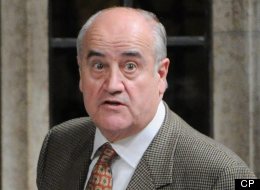Okay. Admittedly that may be the most unpopular title of a blog I have ever tapped out on my laptop.
I can't and won’t explain or defend the $16 orange juice or the limo, but why people focus on that and not the fact that every single day Stephen Harper moves within Ottawa with a motorcade of two black sedans (front and rear) with three smoky-glassed, bullet proof SUVs in between -- FIVE vehicles -- is beyond me. The reality of our outrage levels are such that $16 orange juice grabs headlines and $20 million a year on the PM’s personal security (more than double previous PMs) rolls right by without notice. It’s the way people freak out over a few pennies increase on a litre of gasoline, but, without a whimper, purchase completely unnecessary bottled water at a higher price per litre than gas. It’s just one of those human nature things that defy rational explanation.
I can't and won’t explain or defend the $16 orange juice or the limo, but why people focus on that and not the fact that every single day Stephen Harper moves within Ottawa with a motorcade of two black sedans (front and rear) with three smoky-glassed, bullet proof SUVs in between -- FIVE vehicles -- is beyond me. The reality of our outrage levels are such that $16 orange juice grabs headlines and $20 million a year on the PM’s personal security (more than double previous PMs) rolls right by without notice. It’s the way people freak out over a few pennies increase on a litre of gasoline, but, without a whimper, purchase completely unnecessary bottled water at a higher price per litre than gas. It’s just one of those human nature things that defy rational explanation.















